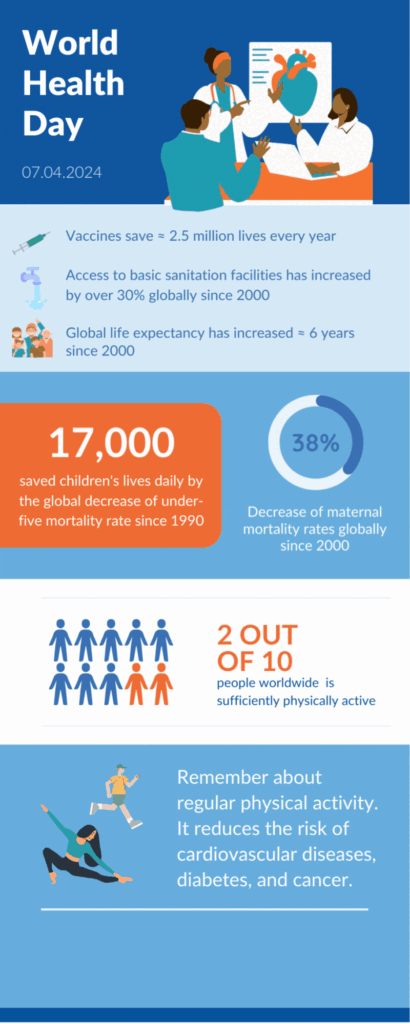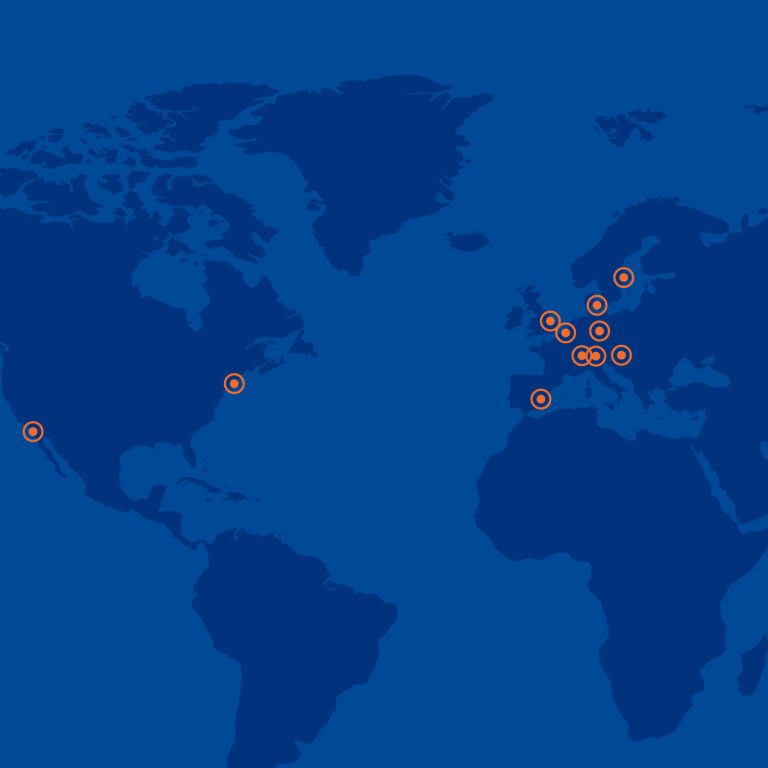As we observe World Health Day 2024, it’s crucial to acknowledge the tangible progress made in enhancing global health outcomes. Amidst the ongoing challenges, there exists a tapestry of achievements reflecting humanity’s dedication to improving well-being worldwide. From substantial declines in child mortality to breakthroughs in infectious disease control and advancements in maternal healthcare, positive statistics on global health offer a compelling narrative of success and resilience. In this article due to World Health Day, we delve into key statistics that illustrate the remarkable advancements in health, underscoring the collective efforts and innovative strategies driving positive change across the globe.
Positive statistics about health
Decline in Child Mortality:
- Since 1990, the global under-five mortality rate has decreased by over 50%, saving approximately 17,000 children’s lives daily.1
Increased Life Expectancy:
- Globally, life expectancy has increased by approximately 6 years since 2000, from 66.8 years in 2000 to 73.4 years in 2019.2
Progress in Infectious Disease Control:
- Vaccination programs have led to the eradication of diseases like smallpox and significant reductions in polio, measles, and other vaccine-preventable illnesses.
- Vaccines save 2-3 million lives every year.3
Advancements in Maternal Health:
- Maternal mortality rates have declined by around 38% globally since 2000, thanks to improved access to maternal healthcare services. 4
Improvements in Sanitation:
- Access to basic sanitation facilities has increased by over 30% globally since 2000, reducing the spread of waterborne diseases.5 6
Combatting HIV/AIDS:
- Increased access to antiretroviral therapy has led to a decline in HIV/AIDS-related deaths, improving the quality of life for millions living with the virus. 7
- Increased access to antiretroviral therapy has led to a decline in HIV/AIDS-related deaths, with approximately 15 million people receiving treatment globally. 8
Reduced Tobacco Use:
- Tobacco use prevalence has decreased globally, with many countries implementing effective tobacco control policies, leading to improved respiratory health outcomes.
- Tobacco use prevalence has decreased globally, with over 1 billion fewer people smoking today compared to 2000 (and 19 million fewer smokers than recorded in 2022), leading to improved respiratory health outcomes.9
Healthier Lifestyles:
- Awareness campaigns promoting healthy lifestyles have led to increased physical activity levels and improved nutrition in many populations.
- Awareness campaigns promoting healthy lifestyles have led to increased physical activity levels, with approximately 1 in 5 adults meeting the recommended levels of physical activity.
- Regular physical activity reduces the risk of cardiovascular diseases, diabetes, and cancer. 10
Healthcare Innovation:
- Advances in medical technology, telemedicine, and precision medicine are revolutionizing healthcare delivery, improving diagnosis, treatment, and outcomes for patients worldwide.
- Advances in medical technology, telemedicine, and precision medicine are revolutionizing healthcare delivery, with over 80% of healthcare organizations globally investing in digital health technologies to improve patient care. 11
These positive trends showcase the progress made in global health and highlight the potential for further advancements in improving health and well-being worldwide.
Infographics due to World Health Day 2024

Sources:




























